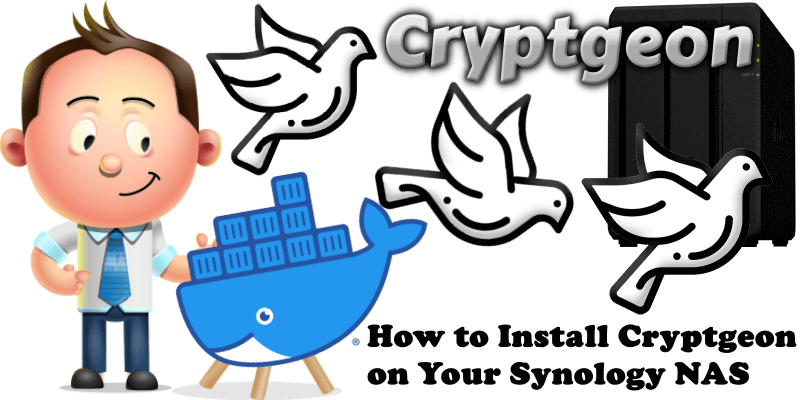
Cryptgeon is a secure, open source sharing note or file service inspired by PrivNote, written in rust and svelte. Each document note has a 512bit generated id that is used to retrieve the note. All the data you create through cryptgeon is stored in memory (RAM) and never persists/stays on your disk on the NAS. In this step by step guide I will show you how to install Cryptgeon on your Synology NAS using Docker & Portainer.
STEP 1
Please Support My work by Making a Donation.
STEP 2
Install Portainer using my step by step guide. If you already have Portainer installed on your Synology NAS, skip this STEP. Attention: Make sure you have installed the latest Portainer version.
STEP 3
Make sure you have a synology.me Wildcard Certificate. Follow my guide to get a Wildcard Certificate. If you already have a synology.me Wildcard certificate, skip this STEP.
STEP 4
Go to Control Panel / Login Portal / Advanced Tab / click Reverse Proxy. Follow the instructions in the image below.
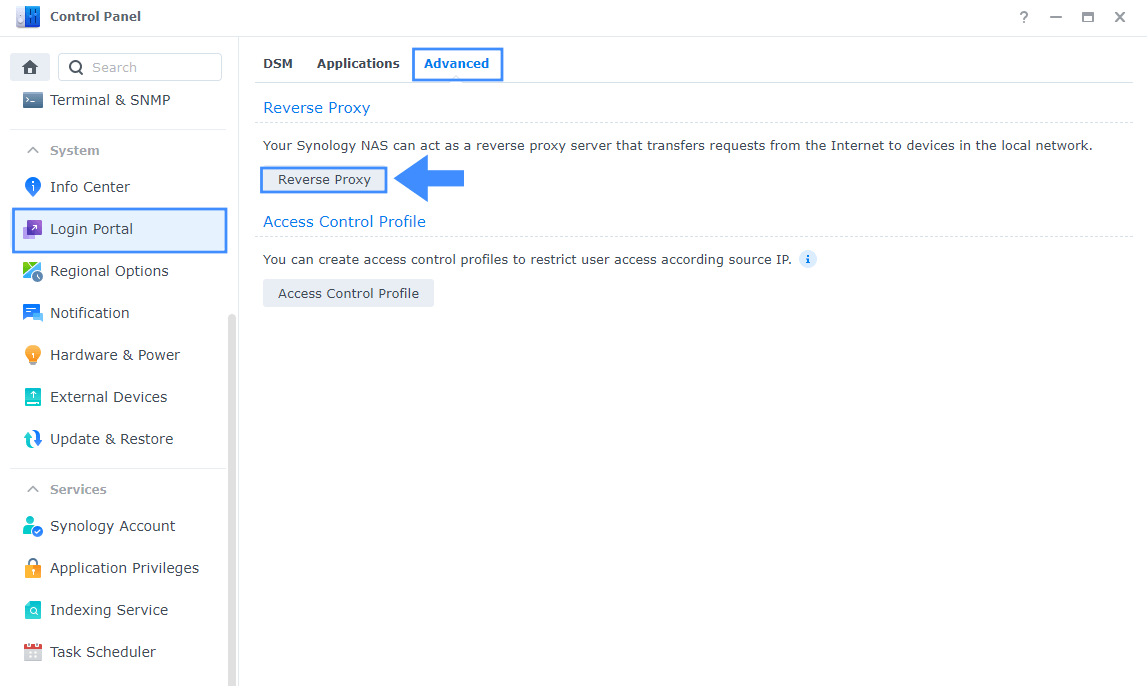
STEP 5
Now click the “Create” button. Follow the instructions in the image below.
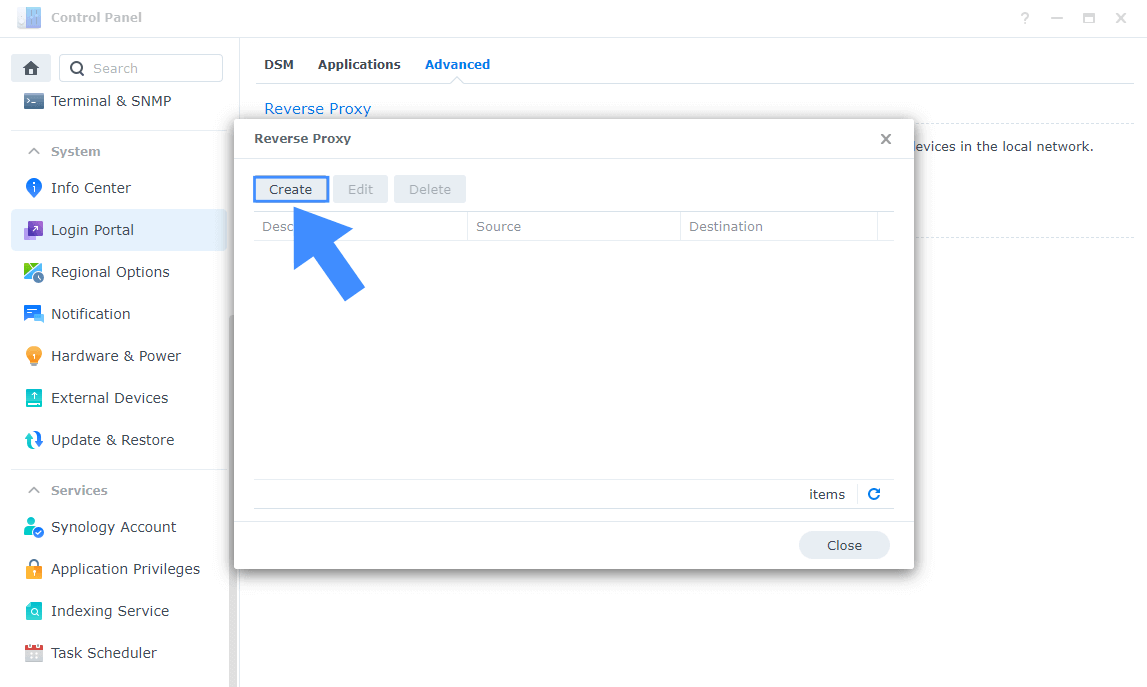
STEP 6
After you click the Create button, the window below will open. Follow the instructions in the image below.
On the General area, set the Reverse Proxy Name description: type in Cryptgeon. After that, add the following instructions:
Source:
Protocol: HTTPS
Hostname: cryptgeon.yourname.synology.me
Port: 443
Check Enable HSTS
Destination:
Protocol: HTTP
Hostname: localhost
Port: 8120
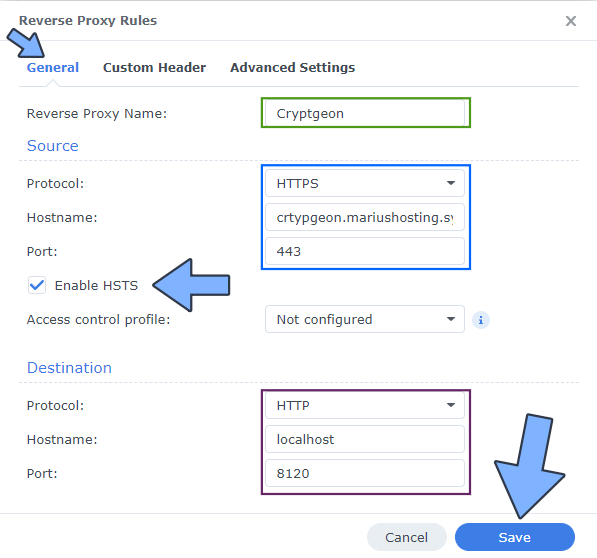
STEP 7
On the Reverse Proxy Rules click the Custom Header tab. Click Create and then, from the drop-down menu, click WebSocket. After you click on WebSocket, two Header Names and two Values will be automatically added. Click Save. Follow the instructions in the image below.

STEP 8
Go to Control Panel / Network / Connectivity tab/ Check Enable HTTP/2 then click Apply. Follow the instructions in the image below.
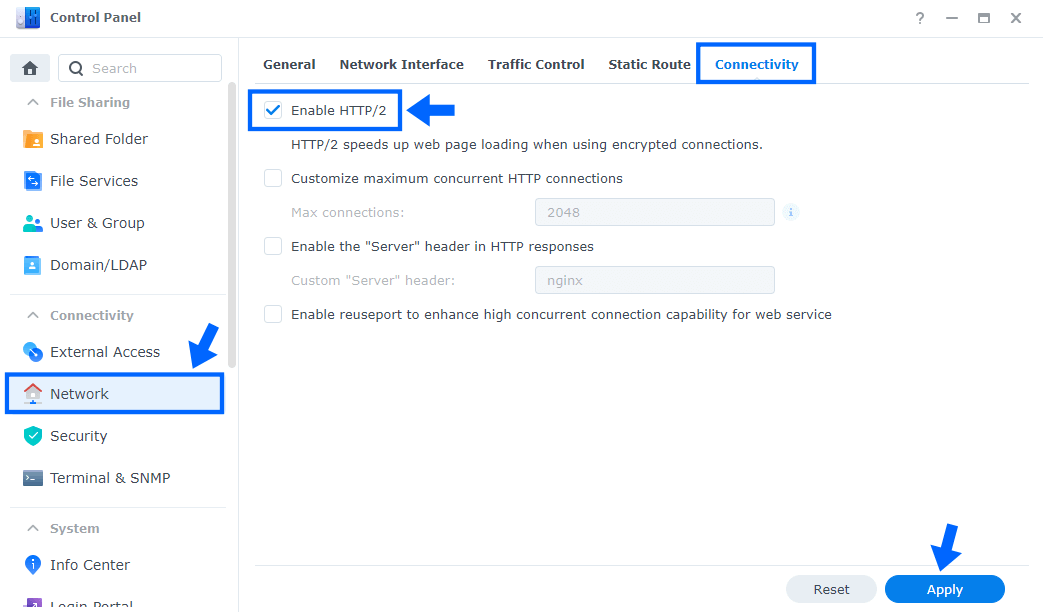
STEP 9
Go to Control Panel / Security / Advanced tab/ Check Enable HTTP Compression then click Apply. Follow the instructions in the image below.
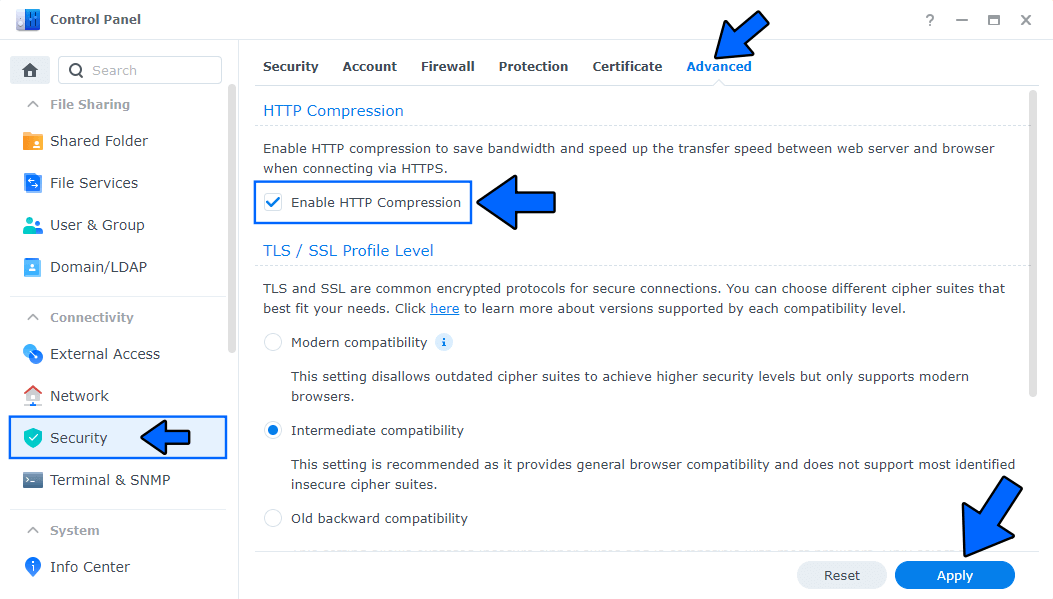
STEP 10
Go to File Station and open the docker folder. Inside the docker folder, create one new folder and name it cryptgeon. Follow the instructions in the image below.
Note: Be careful to enter only lowercase, not uppercase letters.
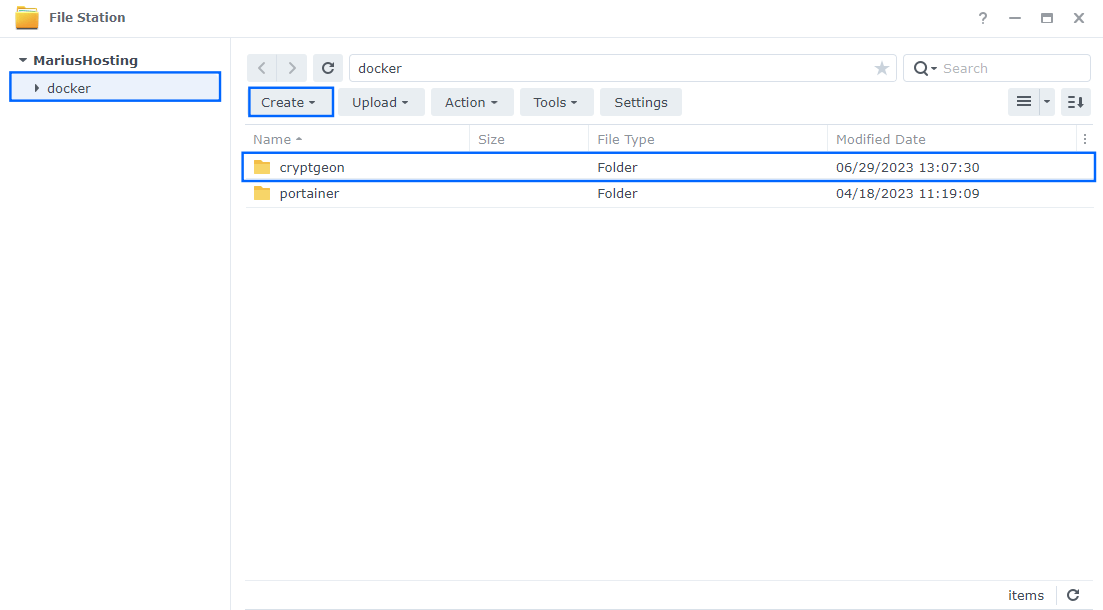
STEP 11
Log into Portainer using your username and password. On the left sidebar in Portainer, click on Home then Live connect. Follow the instructions in the image below.

On the left sidebar in Portainer, click on Stacks then + Add stack. Follow the instructions in the image below.

STEP 12
In the Name field type in cryptgeon. Follow the instructions in the image below.
services:
redis:
image: redis:7-alpine
container_name: Cryptgeon-REDIS
healthcheck:
test: ["CMD-SHELL", "redis-cli ping || exit 1"]
volumes:
- /volume1/docker/cryptgeon:/data:rw
restart: on-failure:5
cryptgeon:
image: cupcakearmy/cryptgeon
container_name: Cryptgeon
healthcheck:
test: ["CMD", "curl", "--fail", "http://127.0.0.1:8000/api/live/"]
interval: 1m
timeout: 5s
retries: 3
start_period: 5s
environment:
SIZE_LIMIT: 512 MiB
ALLOW_ADVANCED: true #or false
ALLOW_FILES: true #or false
ports:
- 8120:8000
depends_on:
- redis
restart: on-failure:5
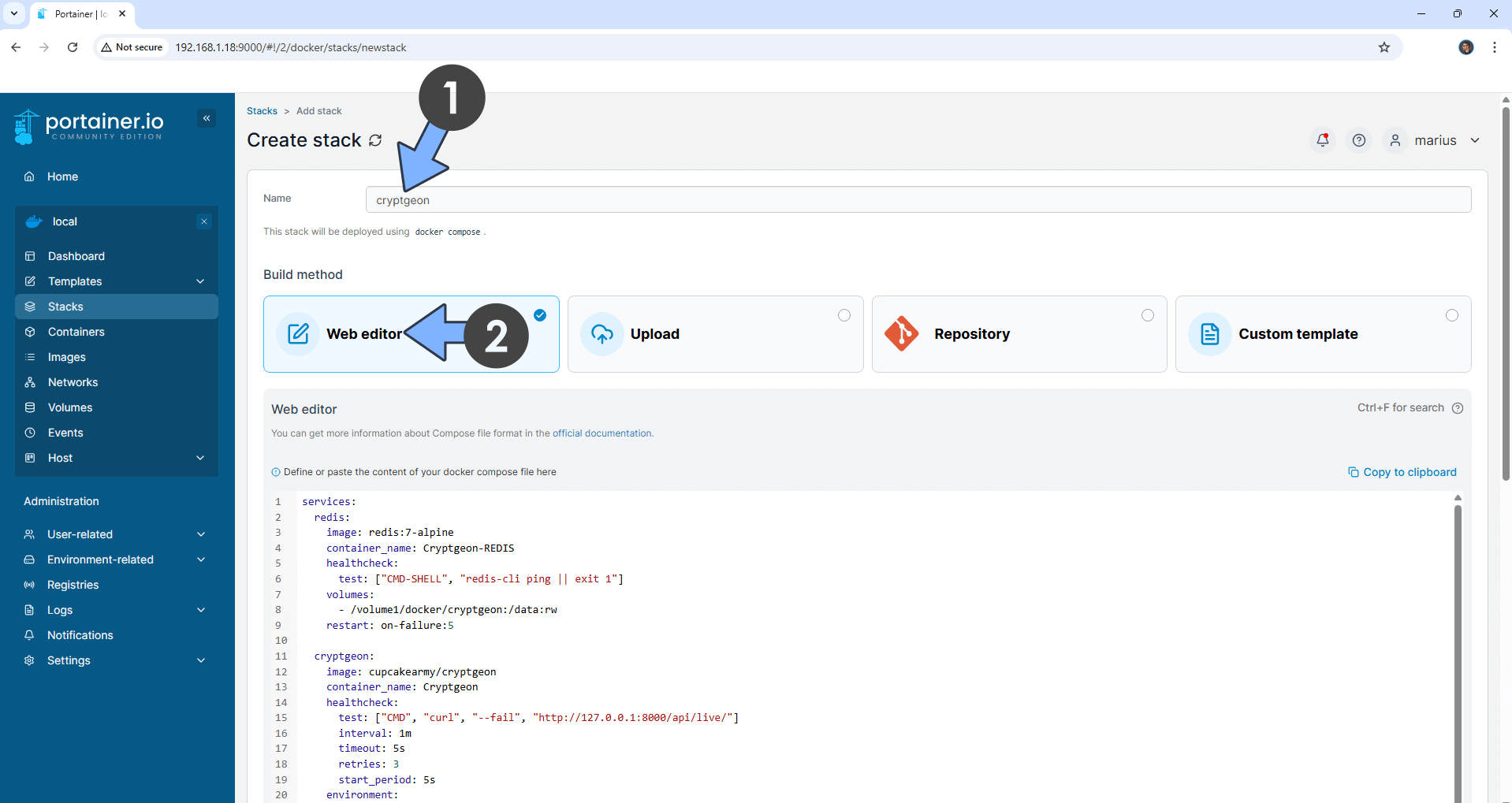
STEP 13
Scroll down on the page until you see a button named Deploy the stack. Click on it. Follow the instructions in the image below. The installation process can take up to a few minutes. It will depend on your Internet speed connection.
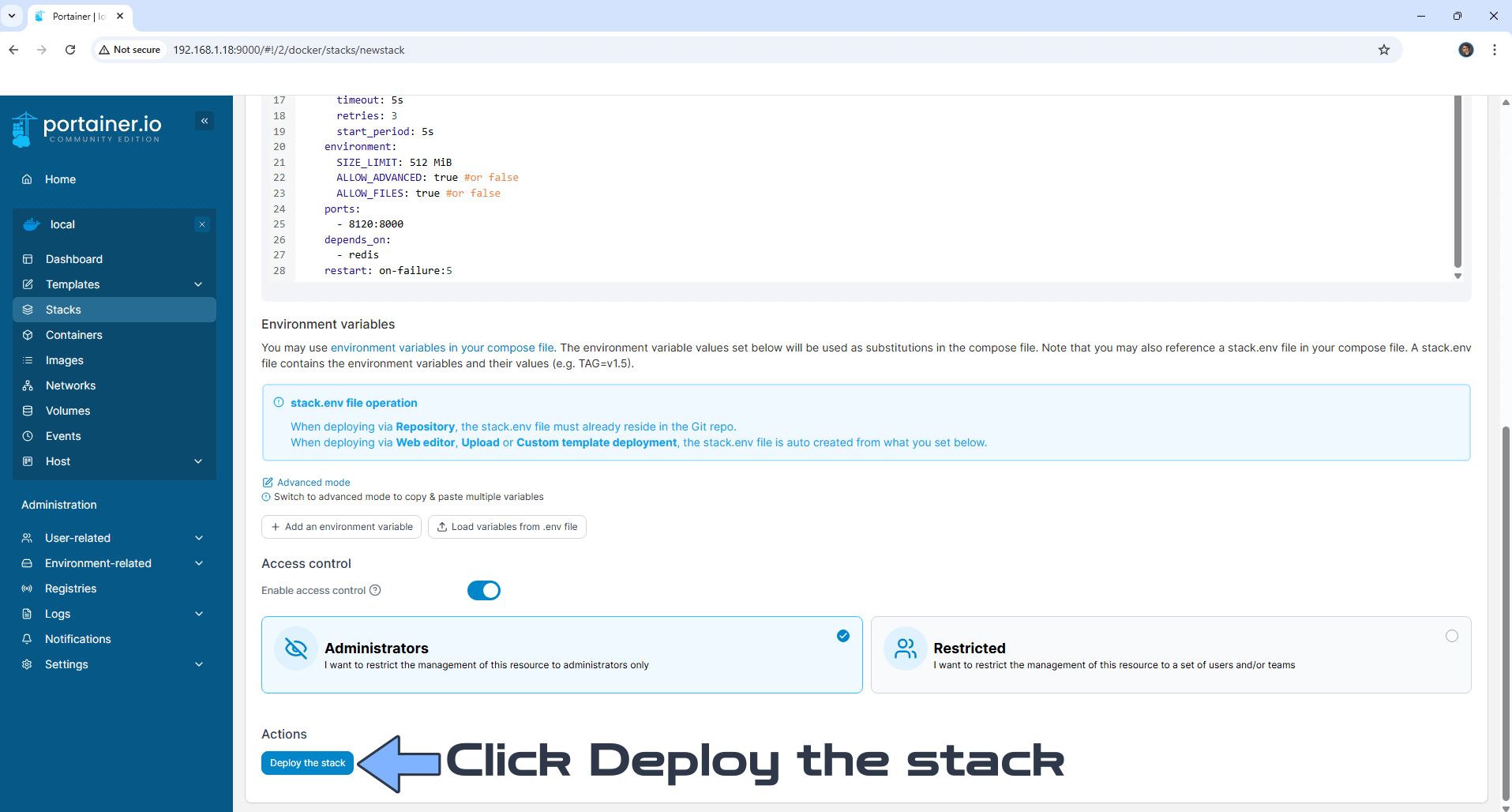
STEP 14
If everything goes right, you will see this message at the top right of your screen: “Stack successfully deployed“.

STEP 15
🟢Please Support My work by Making a Donation. Almost 99,9% of the people that install something using my guides forget to support my work, or just ignore STEP 1. I’ve been very honest about this aspect of my work since the beginning: I don’t run any ADS, I don’t require subscriptions, paid or otherwise, I don’t collect IPs, emails, and I don’t have any referral links from Amazon or other merchants. I also don’t have any POP-UPs or COOKIES. I have repeatedly been told over the years how much I have contributed to the community. It’s something I love doing and have been honest about my passion since the beginning. But I also Need The Community to Support me Back to be able to continue doing this work.
STEP 16
Now open your browser and type in your HTTPS/SSL certificate like this https://cryptgeon.yourname.synology.me that you have previously created at STEP 6. In my case it’s https://cryptgeon.mariushosting.synology.me If everything goes right, you will see the main Cryptgeon page. Add your own text then click Create. Follow the instructions in the image below. Note: You can also switch to the dark mode theme.
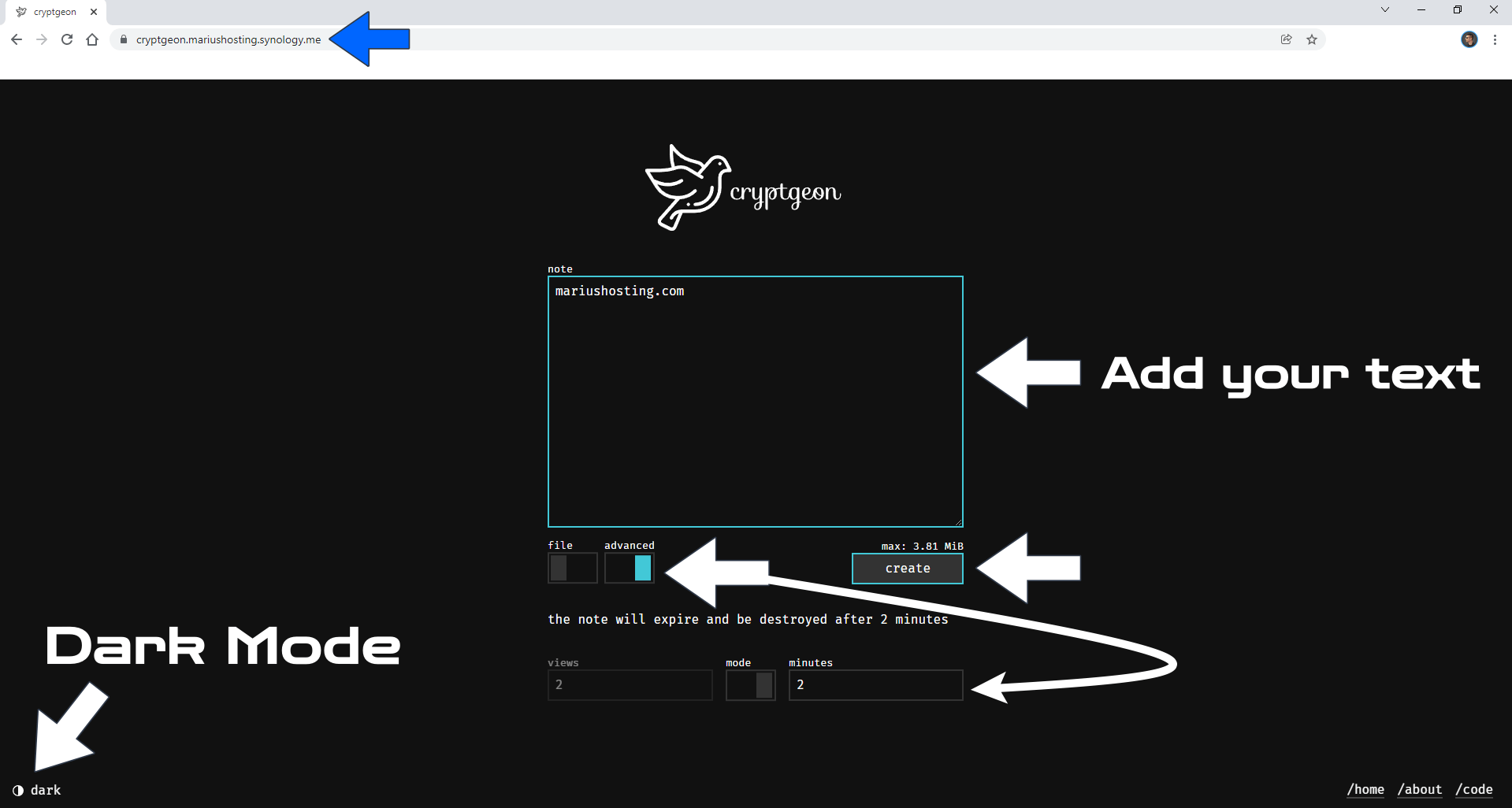
STEP 17
After you click Create on STEP 16, you can copy and share the note with whomever you want. Follow the instructions in the image below.
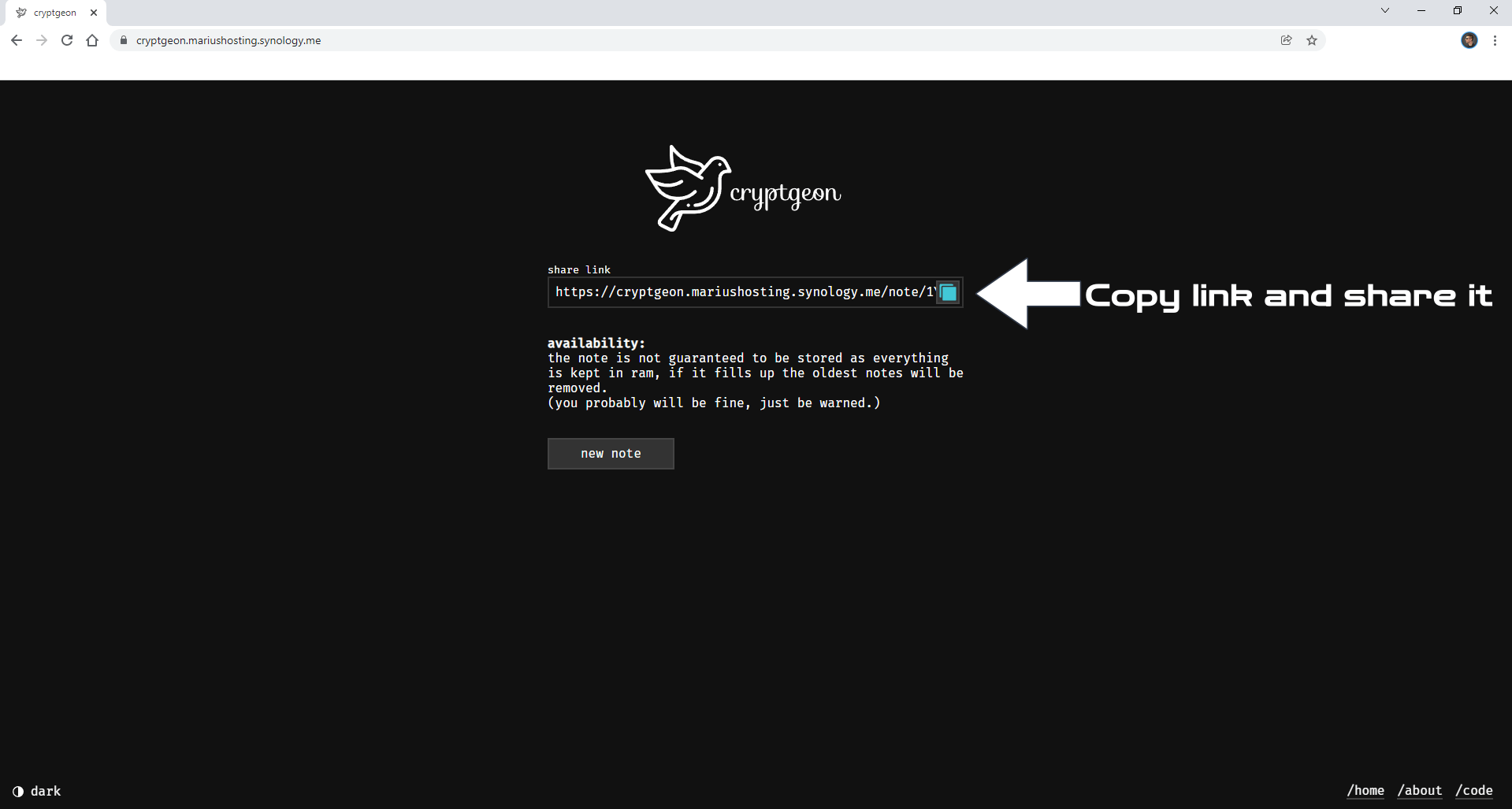
STEP 18
The person accessing the link you provided will have to click on show note to see it. Follow the instructions in the images below.
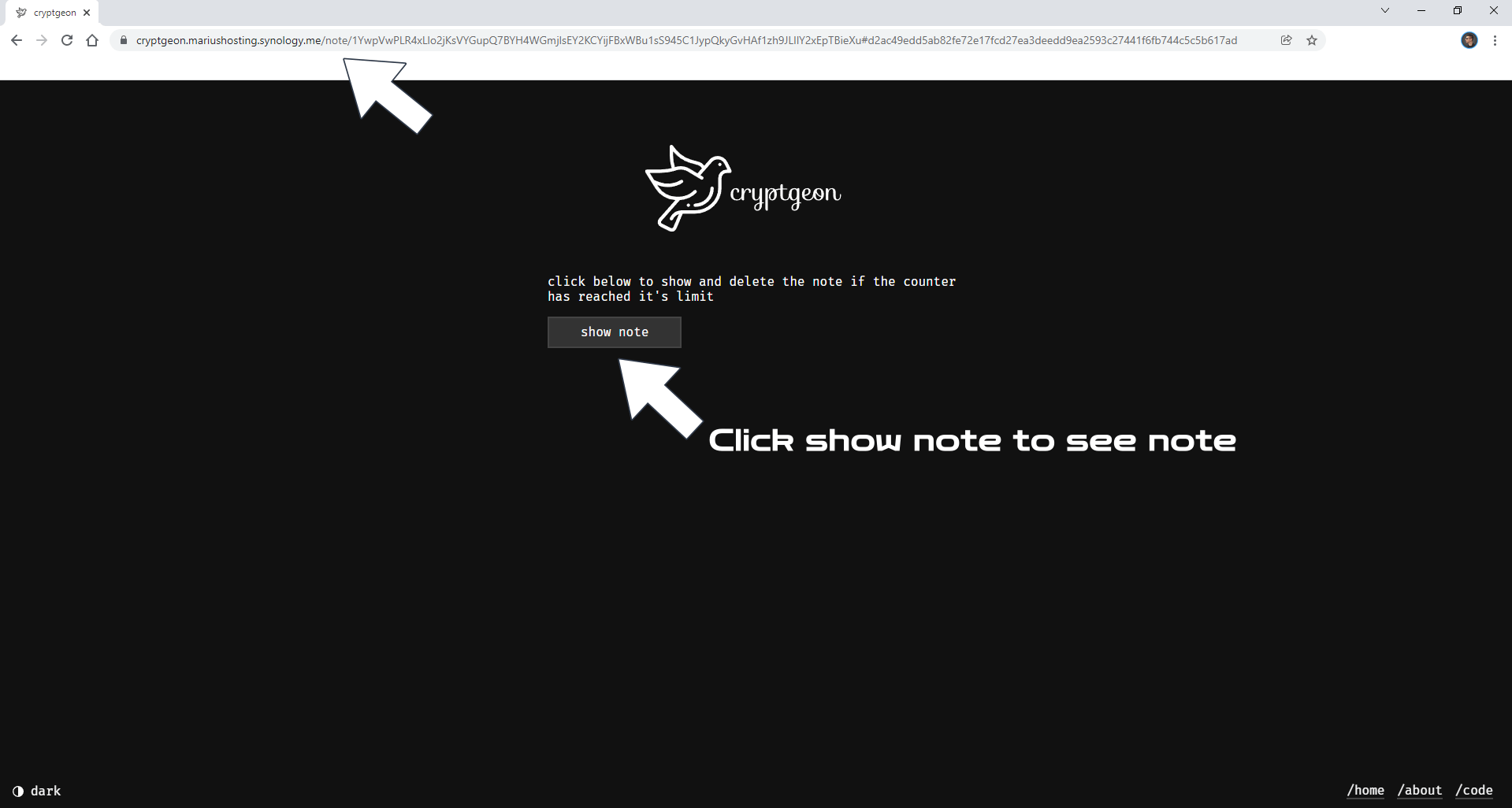
They can also copy the note to their clipboard.
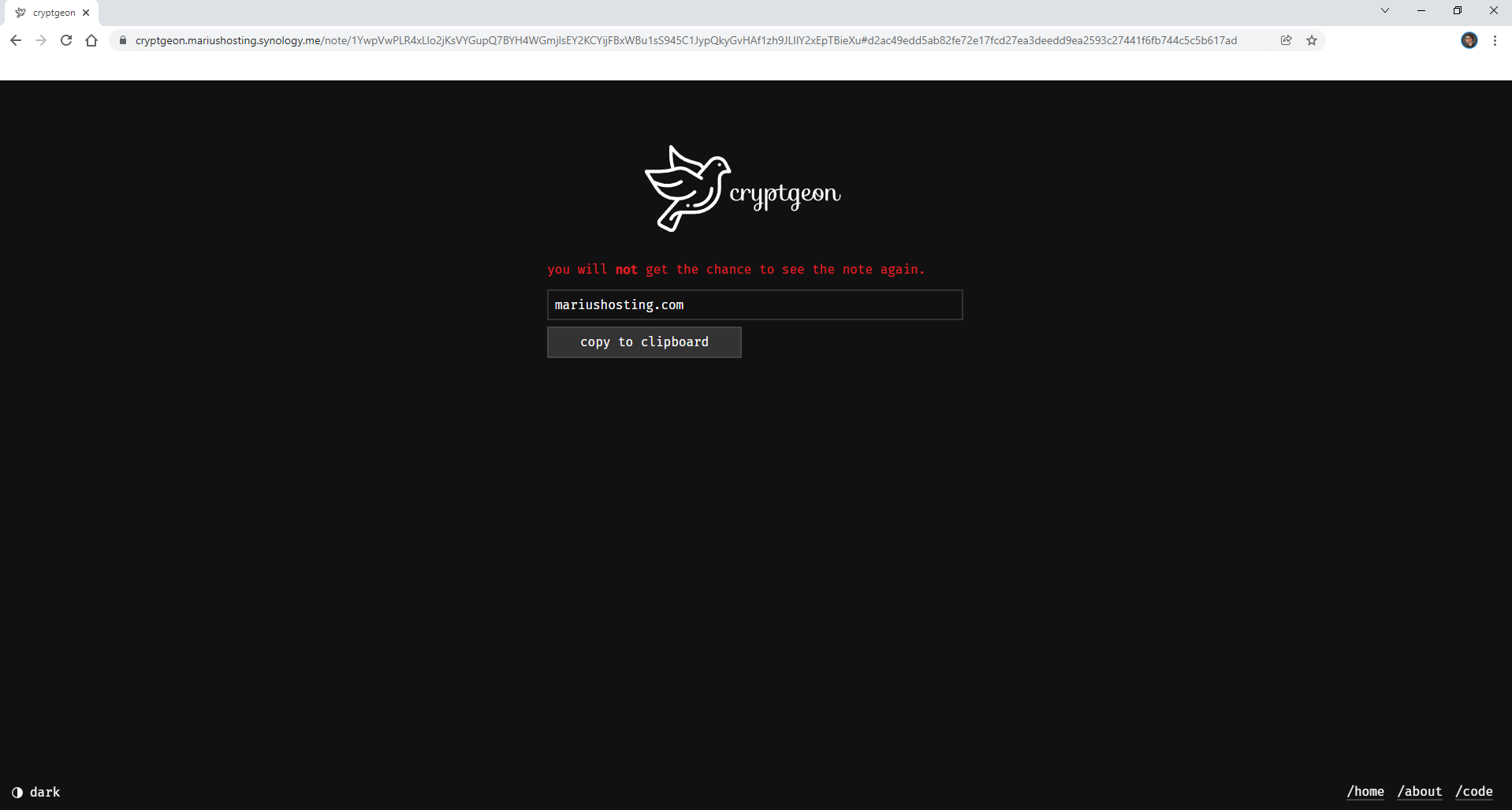
STEP 19
If someone attempts to access the link and you set up a retention policy on STEP 16, they will get a warning message saying that “note was not found or was already deleted”.
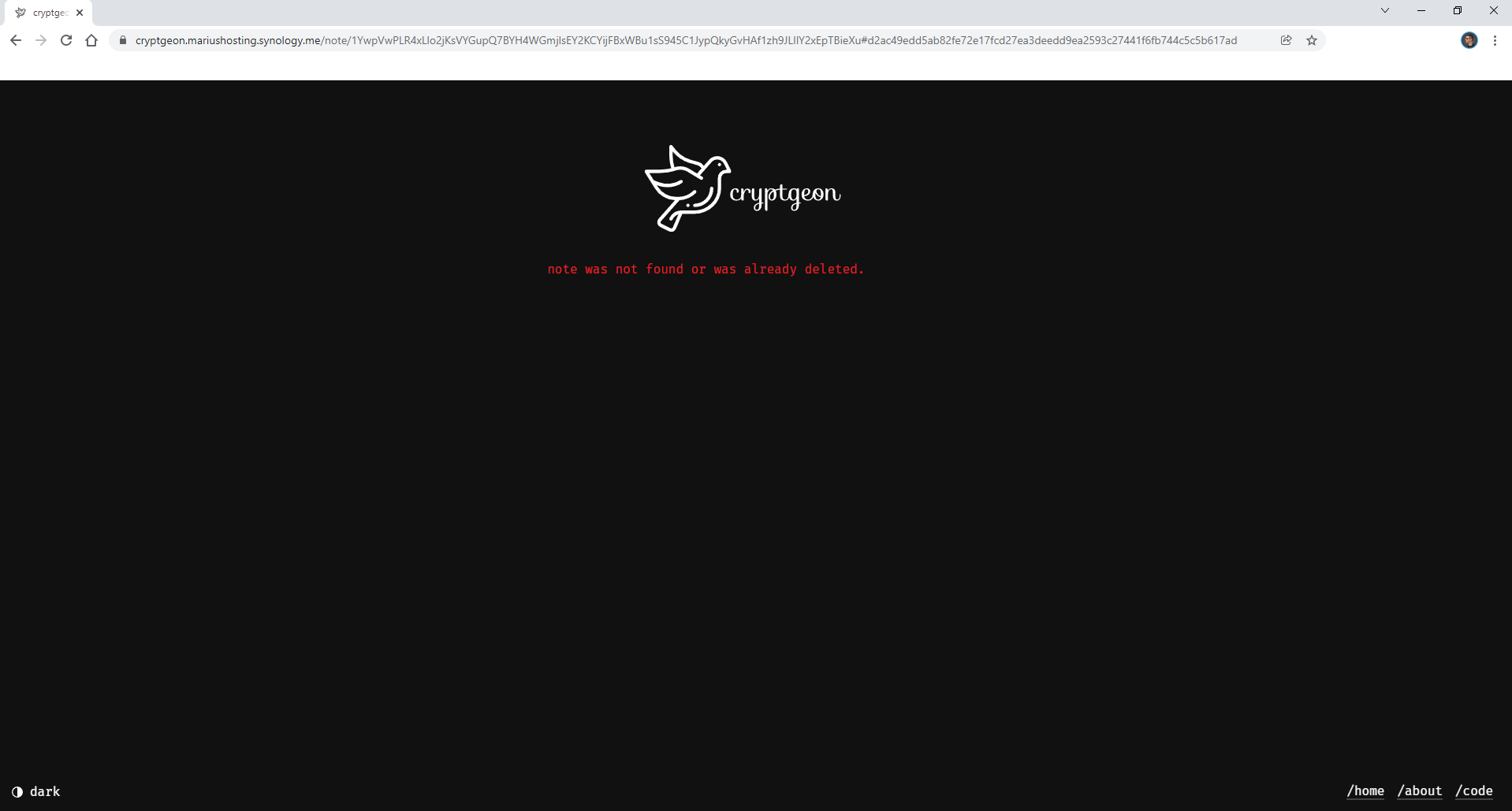
STEP 20
Instead of a note, you also have the option to drag and drop a file from your own computer, with the retention policy of your choice. Follow the instructions in the image below.
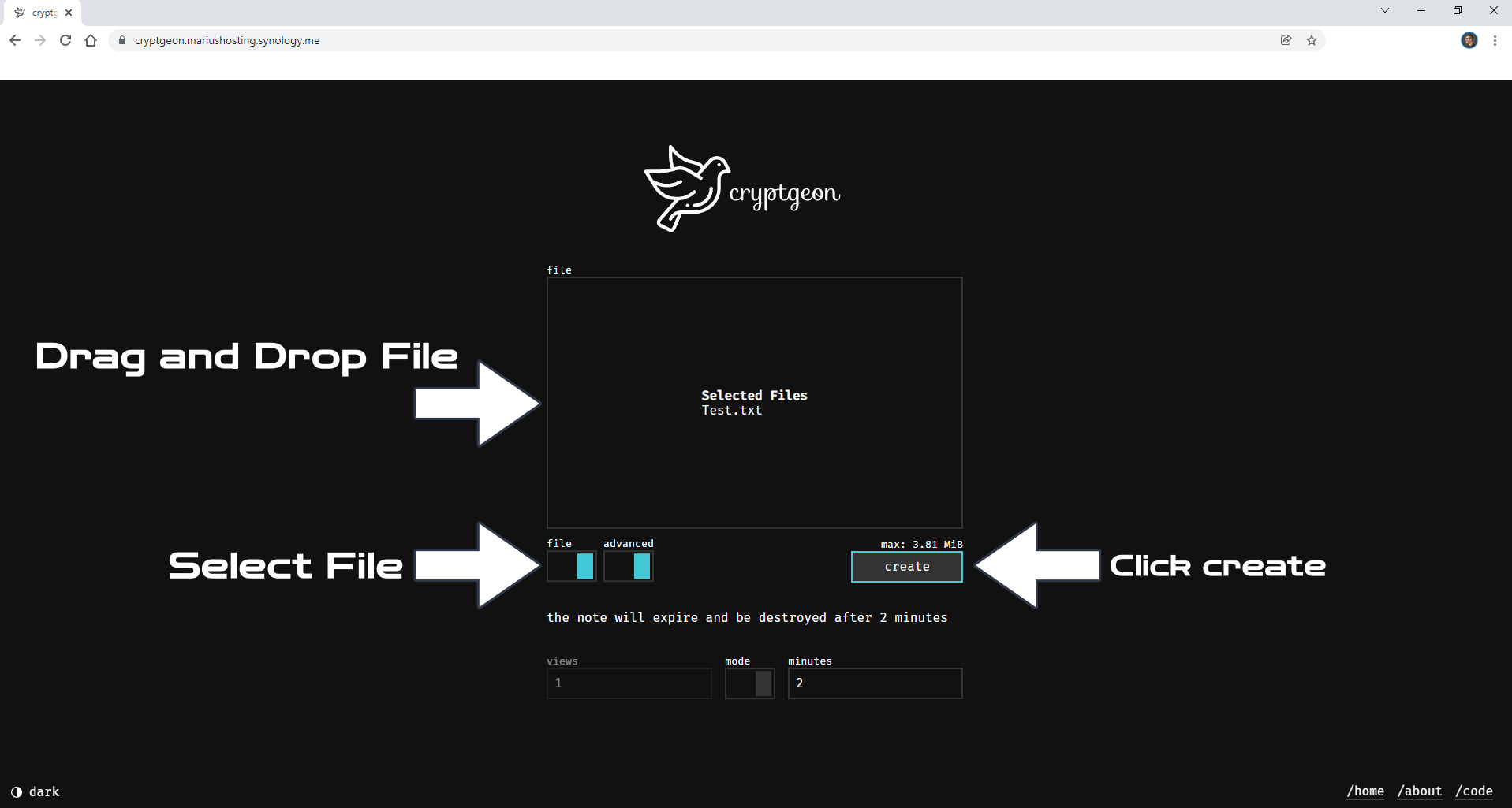
STEP 21
After you provide someone with the link, they can download the file/files. Follow the instructions in the image below.
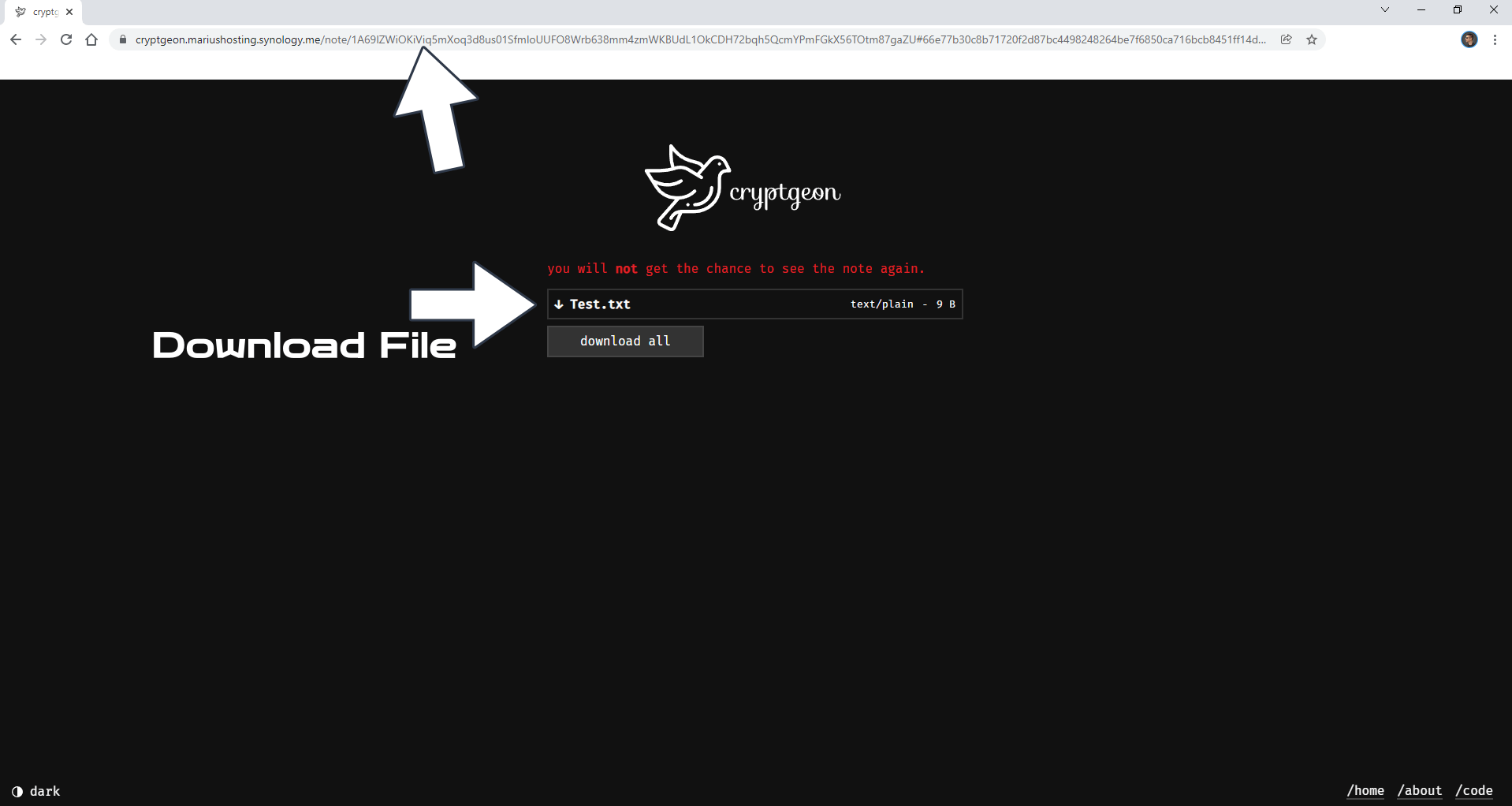
Enjoy Cryptgeon!
Note: Can I run Docker on my Synology NAS? See the supported models.
Note: How to Back Up Docker Containers on your Synology NAS.
Note: Find out how to update the Cryptgeon container with the latest image.
Note: How to Free Disk Space on Your NAS if You Run Docker.
Note: How to Schedule Start & Stop For Docker Containers.
Note: How to Activate Email Notifications.
Note: How to Add Access Control Profile on Your NAS.
Note: How to Change Docker Containers Restart Policy.
Note: How to Use Docker Containers With VPN.
Note: Convert Docker Run Into Docker Compose.
Note: How to Clean Docker.
Note: How to Clean Docker Automatically.
Note: Best Practices When Using Docker and DDNS.
Note: Some Docker Containers Need WebSocket.
Note: Find out the Best NAS Models For Docker.
Note: Activate Gmail SMTP For Docker Containers.
This post was updated on Friday / August 22nd, 2025 at 1:06 AM
